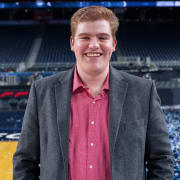John Calipari’s Seismic Move to Arkansas Shifts the Pressure at Kentucky

In one of the most seismic coaching carousel moves in recent history, John Calipari is headed to Arkansas.
The longtime Kentucky Wildcats coach is set to leave Lexington for the Arkansas Razorbacks job in a landscape-altering move, replacing Eric Musselman, who left for the USC Trojans earlier this week. Calipari makes the move after receiving a vote of confidence from Kentucky athletic director Mitch Barnhart in March following a shocking loss to the Oakland Golden Grizzlies in the first round of the men’s NCAA tournament. Amazingly, all this stems from what seemed like a rather innocuous move at the time: SMU parting ways with Rob Lanier after two years. That led USC’s Andy Enfield to head to SMU, Musselman to USC, and now, Calipari to Arkansas.
There’s no question pressure had intensified on Calipari due to his program’s recent March struggles. After a roaring start to his tenure that featured a national championship in 2012 and four trips to the Final Four in a five-year span from 2011 to ’15, Calipari’s program (and his one-and-done-centric recruiting model) stalled out. Kentucky hasn’t reached the Final Four since ’15, when UK went 38–1 and looked like an all-time great team before faltering in the Final Four against the Wisconsin Badgers. And things had really fallen off since the COVID-19 pandemic. Kentucky hasn’t advanced out of the Big Dance’s first weekend since, including a disastrous 9–16 season in 2020–21 and catastrophic upset losses as a No. 2 seed (to No. 15 Saint Peter’s in ’22) and No. 3 seed (to No. 14 Oakland in ’24). All that raised tensions substantially in Lexington, and Calipari elected to avoid a potential hot-seat season in 2024–25 and instead flee for Fayetteville.
Is the Arkansas job on the same level as Kentucky, perhaps the best job in the sport? Of course not. But it is a program with rich tradition and passionate fans and the only SEC program other than Kentucky that can realistically consider itself a “basketball school” first. The Razorbacks won the 1994 national championship under Nolan Richardson, have six Final Fours in their history and went to the second weekend of the NCAA tournament three times in five years under Musselman. Plus, the traditional calculus when it comes to job rankings has somewhat gone out the window in 2024, given the importance of name, image and likeness (and associated collectives) in how talent is acquired. According to Jeff Goodman of The Field of 68, Arkansas is expected to pony up an NIL package for Calipari to recruit with that will be north of $5 million annually, a number that would register as one of the highest in the nation. Arkansas’s donor base, one of the richest in sport, gives the program an opportunity to compete at the highest level resource-wise in the nation. NIL has without a doubt been a factor in other high-profile searches of late, but this feels like the first instance in this new era of a job’s fundamentals changing enough to coax one of the nation’s highest-paid coaches into a move.
Meanwhile, this functions as something of a “get out of jail free” card for Kentucky and Barnhart. It has been an open secret in industry circles that the relationship between Barnhart and Calipari had frayed in recent years, but for a long time, the two felt stuck with one another. That was in large part to what was often described as a “lifetime” contract signed in 2019, a 10-year agreement worth close $86 million. The deal was incredibly one-sided: Calipari owed $0 to leave Kentucky but would be owed massive sums if he was fired by the school. The number to part ways with him this spring: $33 million, which undoubtedly contributed to Barnhart’s choice to stand by Calipari despite substantial public pressure in the aftermath of the Oakland loss. Kentucky getting out of that contract with a chance to start fresh, while unexpected, might be the best thing that could’ve happened for the program.
Of course, that’s predicated on Kentucky nailing the hire to replace him. It can simultaneously be true that Calipari underperformed substantially in the latter half of his Kentucky tenure while also having one of the highest ceilings in the sport over the past decade. Kentucky recruited elite talent, won a ton of regular-season games and Calipari was the type of personality that fit the monster that is the UK job. And in an era in which it has become harder and harder to lure elite coaches to leave their jobs, it’s no guarantee that the school will be able to land the names at the top of its list.
They could swing at Billy Donovan, though it’s far from a lock he’d leave a plum gig in the NBA for the grind that is current college coaching. Dan Hurley seems likely to get a call and would be the ideal hire, but it’d be surprising for him to leave the UConn Huskies. Nate Oats from the Alabama Crimson Tide fits the job and is fresh off a trip to the Final Four, but recently signed an extension that sets his buyout at $18 million. The Baylor Bears’ Scott Drew is probably the most realistic candidate and has a manageable buyout of just $4.5 million. If the list expands far beyond that, Kentucky may rue the day it let Calipari walk.
College coaches have been buzzing for weeks about this year’s carousel being among the most active in the sport’s history. With the Kentucky job now open, that has officially come true. And with it, a set of dominoes falling that could shake up the sport for the next decade.
